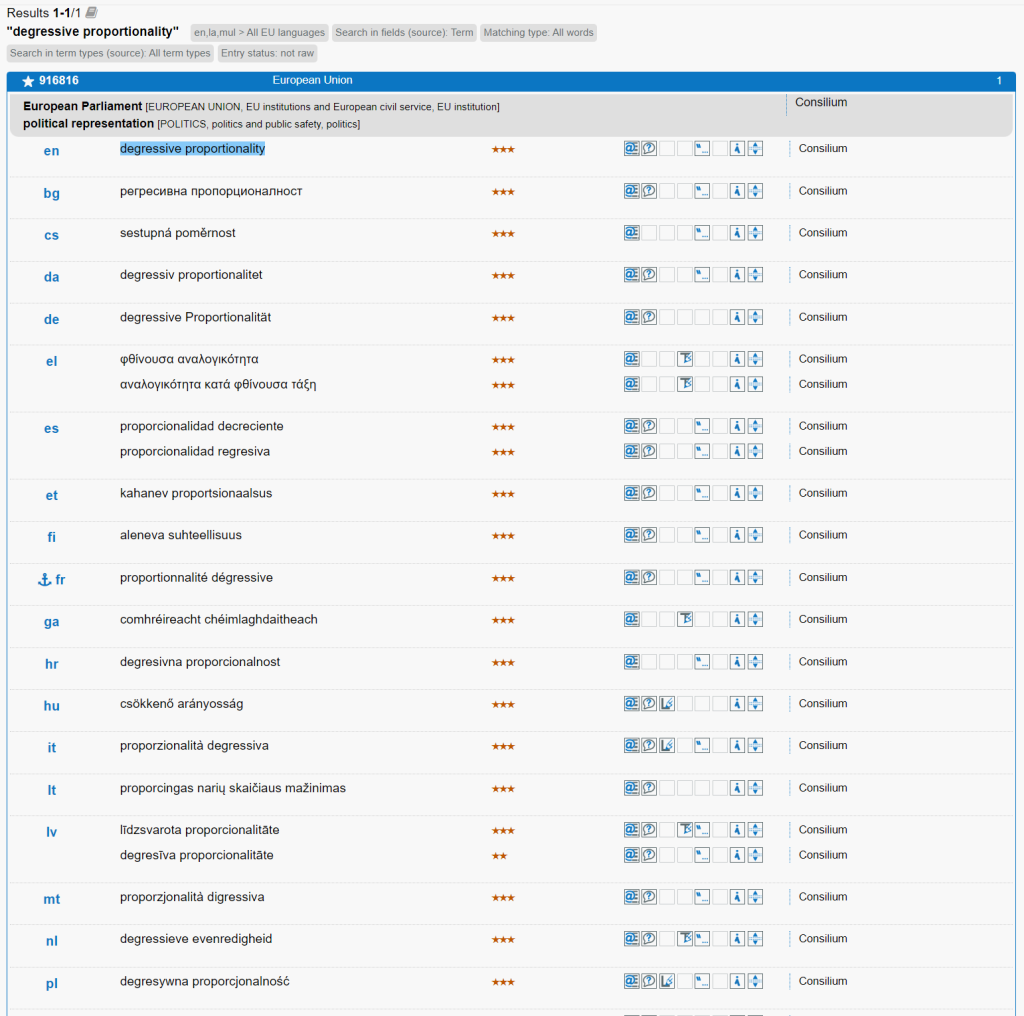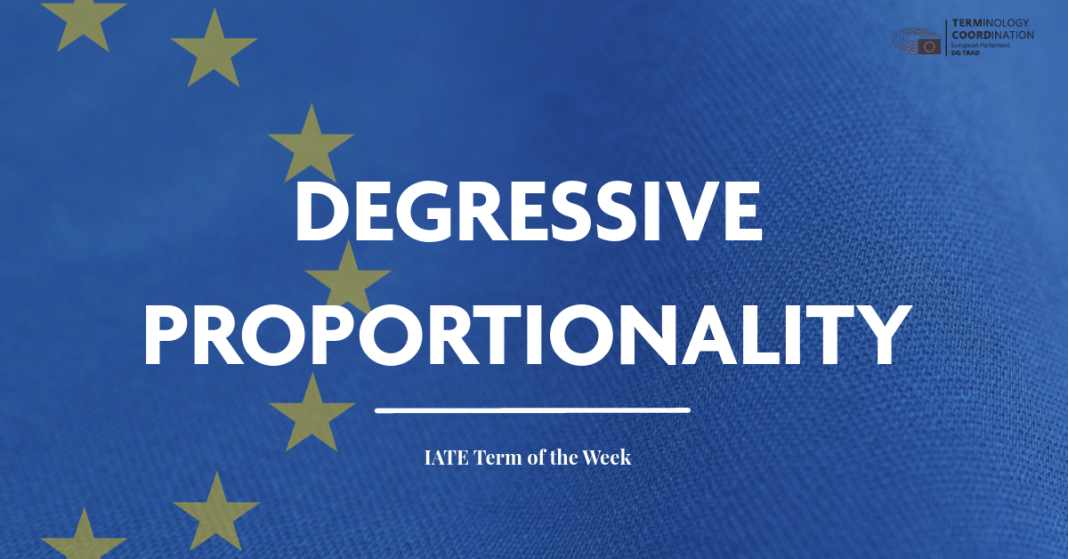Degressive proportionality is a way of dividing up representation in politics. In this system, bigger areas or groups get a bit less representation per person than smaller ones. In other words, as the size or population of a region increases, its representation per capita decreases.
In the European Parliament, the allocation of seats is based on this principle. Greater the population of a Member State, the greater number of MEPs it will have — however, each MEP in a larger Member State then represents proportionately more citizens than would be the case in a smaller Member State.

Introduced by the Lamassoure-Severin report, this concept has a very broad meaning. In the complex landscape of European politics, the principle of degressive proportionality has emerged as a key mechanism for balancing democratic equality and representation within the European Parliament (EP). This principle, enshrined in Article 14(2) of the Treaty on European Union (TEU), acknowledges the diverse needs and voices of member states while striving to uphold democratic ideals. According to the mentioned article, hence, the way seats are divided up in the European Parliament needs to be “degressively proportional”, meaning that smaller countries get more MEPs per person than bigger ones. This is done to make sure smaller countries have enough MEPs to represent their political parties properly. However, it also means that there is a difference in how much each vote counts between countries, which is not really fair in a transnational election.
On the other hand, degressive proportionality poses challenges to the legitimacy of systems such as the lead candidate system, where the political group with the most votes may not necessarily secure the most seats, as it can lead to discrepancies between the EU-wide vote share of a European party and the seat share of its political group in the EP.
Despite these challenges, degressive proportionality serves a crucial function in ensuring adequate representation of smaller member states’ party systems within the EP. In the fragmented European public sphere, MEPs play a vital role as bridges between national and European levels of political discourse. Over-representation of smaller member states facilitates this communication and fosters inclusivity within the Union.
However, the compromise between democratic equality and representation of smaller member states’ interests is delicate. As the Union evolves, with potential future enlargements and shifts in political dynamics, careful consideration must be given to the impact of seat allocation on voting power imbalances within the EP.
Finally, degressive proportionality allows for the articulation of heterogeneity and diversity within the Union citizenry, which remains divided in national constituencies. By balancing representation across different population sizes, it ensures that no region or party is overshadowed by larger counterparts.
Conclusion
In conclusion, the basic concept in degressive proportionality consists of assigning fewer seats to larger states than their corresponding proportion, in order to assign more seats to smaller states. While degressive proportionality presents challenges to democratic ideals, it remains a fundamental aspect of representation within the European Parliament. Its continued application requires ongoing evaluation and adaptation to maintain a delicate balance between democratic equality and the representation of diverse voices within the European Union.
Bibliography:
https://eur-lex.europa.eu/legal-content/EN/TXT/?uri=CELEX:32013D0312
https://eur-lex.europa.eu/legal-content/EN/TXT/?uri=LEGISSUM%3Aai0010
A permanent system for seat allocation in the EP – Reconciling degressive proportionality and electoral equality through proportional completion:
The Composition of the European Parliament: https://www.europarl.europa.eu/RegData/etudes/IDAN/2017/583117/IPOL_IDA(2017)583117_EN.pdf
Written by Marilena Martucci
Born and raised in Fasano, Italy, she developed a deep fascination for linguistics and diverse modes of communication. Her academic journey commenced with a Bachelor’s degree in Linguistics and Intercultural Communication in Bari, followed by advanced studies in Linguistics and Translation in Pisa. Fueled by her passion for Portuguese culture and language, she embarked on two enriching Erasmus experiences in Coimbra and Lisbon. After completing her Master’s degree, she settled in Lisbon, immersing herself in the fields of Journalism and Communication while continuously refining her expertise in languages and translation. Specialising in medical translation, she furthered her academic pursuits by studying Economics and Communication. She transitioned to a career in translation as Schuman Trainee at the European Parliament, focusing on terminology. Beyond her professional life, she enjoys exploring new cuisines, cooking, dancing, and indulging in literature.

